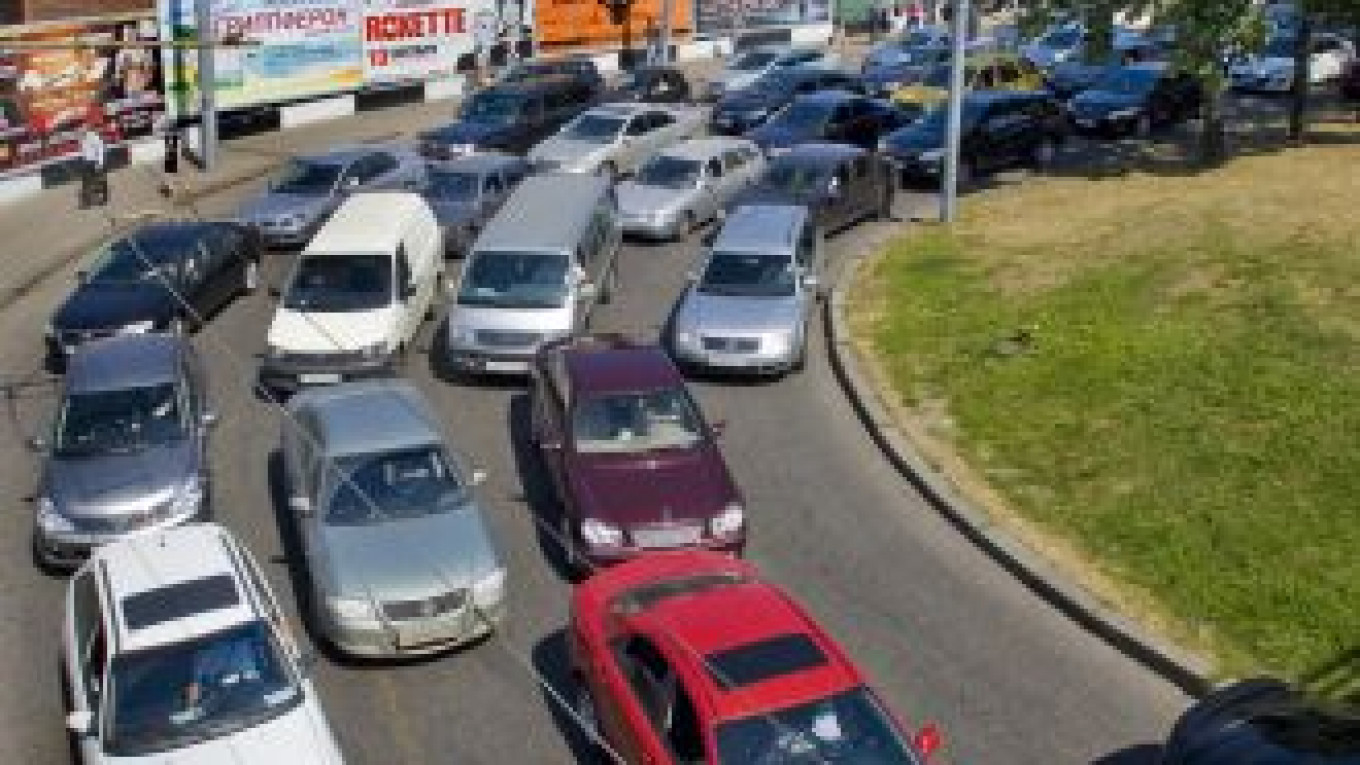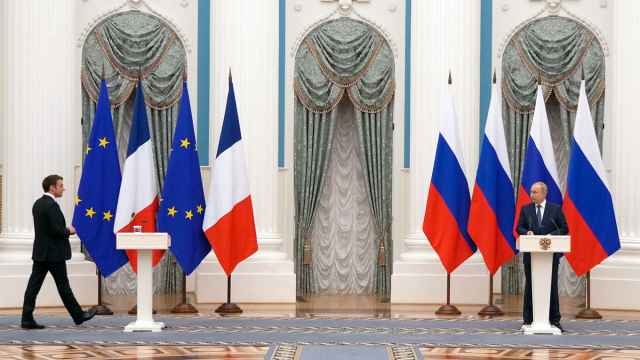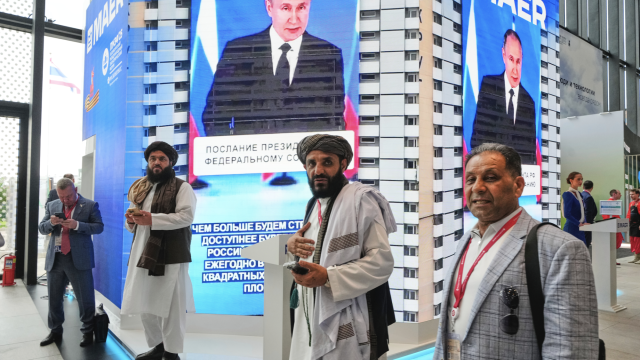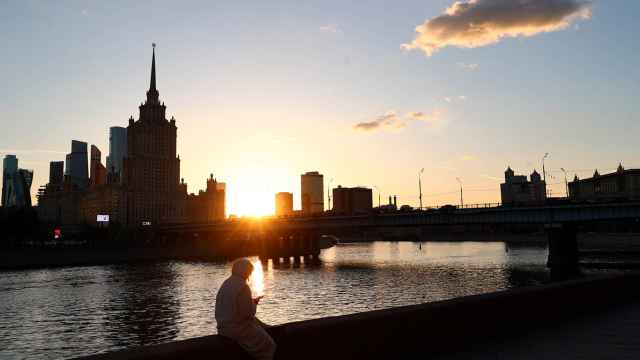Moscow’s horrendous traffic jams can largely be blamed on illegally blocked roads, a lack of connecting routes and failure to make use of potential connecting routes under bridges and across other unused land, according to a report released Thursday.
Researchers with the Center for Combating Traffic Jams based their report on inspections of more than 100 “stop points” in and around Moscow suggested by local residents in posts on Probok.net.
The research, carried out between April and June, revealed a litany of roads that have been deliberately blocked, obstructed by ill-thought-out construction or are simply inaccessible.
The resulting hefty document catalogs a comedy of errors in road management that the authors say is responsible for much of the capital’s hellish congestion. Highlights include a four-lane flyover across the Moscow Ring Road at the 83rd kilometer that goes nowhere, and another bridge on the 87th kilometer that has simply been blocked — apparently by the residents of nearby military settlements.
“I think it was conceived as a connection between Moscow and the village of Severny outside the MKAD. The flyover was built, but the rest of the road was forgotten,” Alexander Shumsky, head of the center and one of the authors of the report, said at a news conference, referring to the bridge to nowhere.
Elsewhere, a disused tramway line that runs into a wall on Lesnaya Ulitsa is blamed for jams extending onto Novoslobodskaya Ulitsa and Ulitsa Palikha.
In Khimki, one budding entrepreneur blocked one of two main entrances to the town with a paid parking barrier, and charged impatient drivers 100 rubles each to “park” — although they really just drive straight through.
And in the north of the city, a section of Proyezd Beryozovoi Roshchi between Grizodubovoi and 4th Magistralnaya Ulitsa has been blocked to make a similar parking lot (this time a genuine one) for the military intelligence service facility there — causing “huge traffic jams” on neighboring streets.
The writers also criticized the delayed opening of the southern entrance to the Annino metro station that would allow passengers to reach the metro station without crossing the road — making it safer for pedestrians and more convenient for drivers. On Dubinskaya Ulitsa a level crossing across a rarely used railway line is blocked by concrete blocks.
Varshavskoye Shosse in the southwest is in a particularly bad way, including property attached to a residential house that extends across two lanes of the busy road, an almost complete intersection at 2nd Melitopolskaya Ulitsa that has not been finished because of a legal dispute, and a completed road that can only be used at great risk or by making an illegal turn because the lights at the junction have not been turned on.
The result is a proliferation of doglegs and bottlenecks that artificially increase journey distance. “The ratio of actual journey distance to [distance] as the crow flies is 1.2 in a normal city. In Moscow it is 1.53,” Mikhail Blinkin, scientific head of the Institute for Traffic and Roads, told the news conference. “The best way to deal with this is to have as many connecting roads as possible.”
The report said the western part of the city is the best managed, with more road connections than anywhere else.
The city traffic police Wednesday appealed to parents to buy their children new school books and equipment early to avoid traffic jams in the run-up to Sept. 1, when school starts again.
Mayor Sergei Sobyanin’s administration has made dealing with the capital’s notorious traffic jams a top priority.
But critics say his plans — including the construction of a fourth ring road — focus on major infrastructure projects at the expense of less visible but more effective measures.
“Of course we need new roads and intersections,” Shumsky said, referring to the city’s transport strategy. “But there are much cheaper options.”
Shumsky will present his findings to Sobyanin on Friday.
A Message from The Moscow Times:
Dear readers,
We are facing unprecedented challenges. Russia's Prosecutor General's Office has designated The Moscow Times as an "undesirable" organization, criminalizing our work and putting our staff at risk of prosecution. This follows our earlier unjust labeling as a "foreign agent."
These actions are direct attempts to silence independent journalism in Russia. The authorities claim our work "discredits the decisions of the Russian leadership." We see things differently: we strive to provide accurate, unbiased reporting on Russia.
We, the journalists of The Moscow Times, refuse to be silenced. But to continue our work, we need your help.
Your support, no matter how small, makes a world of difference. If you can, please support us monthly starting from just $2. It's quick to set up, and every contribution makes a significant impact.
By supporting The Moscow Times, you're defending open, independent journalism in the face of repression. Thank you for standing with us.
Remind me later.






